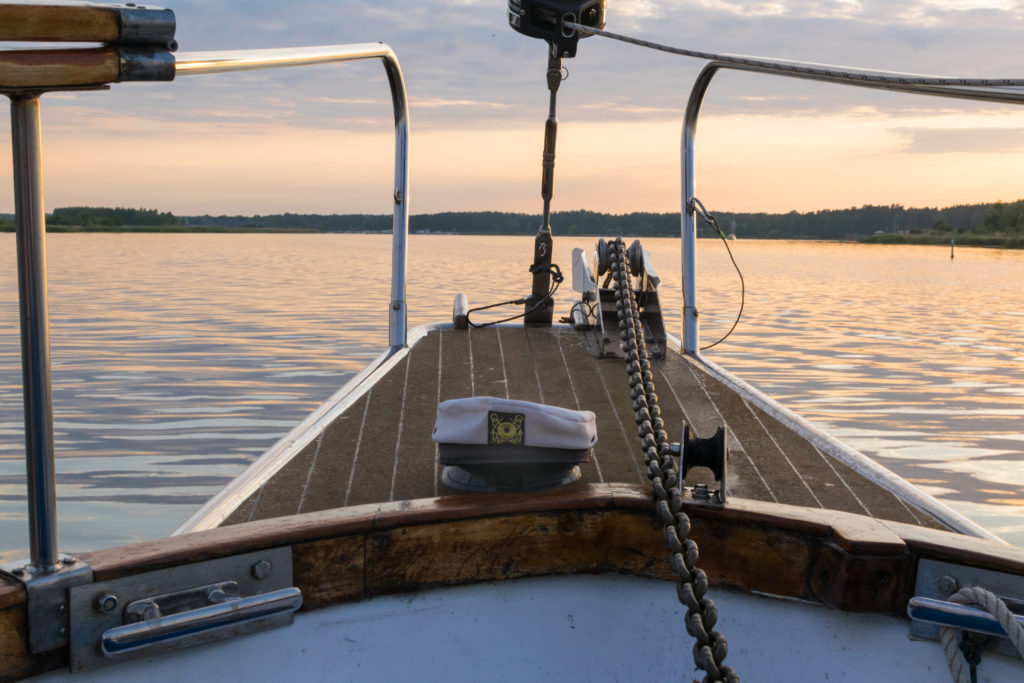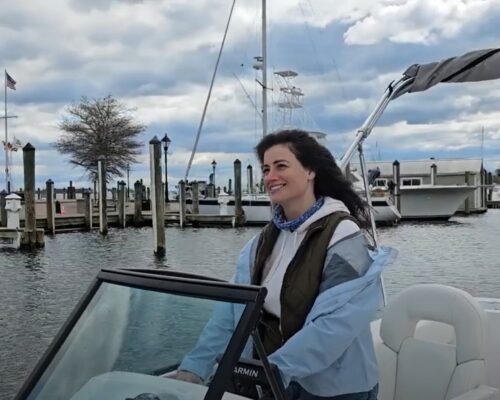Ahoy, Bay boaters! Let’s start the boating season with a clean slate. ‘Clean slate’ is a term that we inherited from sailing. Daily ship’s logs were written on a slab of slate. Each new watch officer would erase the previous entries and start over, thus starting the day with a clean slate.
This is just one of many phrases from the time of masted sailing that we still use in modern times. We say ‘down the hatch’ when we eat or drink something—the original phrase comes from cargo being loaded down the hatch on a boat.
Here’s a quick look at some maritime terms we still use today.
- A1—In Lloyd’s Register of Shipping, the world’s first and largest ship-classification society, A1 was the mark of a first-class wooden ship. These days we say “It’s important for safety to maintain a boat in A1 condition.”
- Above board—Pirates would have crew members gather on the decks rather than below to fool potential victims into thinking it was an honest merchant ship. Today it means to give something legitimacy.
- All hands on deck – Sailors gathered on the deck to discuss tasks. Today this phrase means everyone is needed for a specific task.
- Barge in—This term today means a tactless appearance or interruption. It is believed to have come from barges having difficulty in maneuvering.
- Devil to pay—The “devil” seam ran along the hull at the deck level and was the hardest to caulk (to “pay” meant to caulk). A sailor had to hang off the deck to caulk the seam and was said to be “between the devil and the deep blue sea.”
- Knows the ropes—Knowing the function of all the ropes on a sailing vessel requires years of experience. These days, there are numerous folks at the yacht club who really “know the ropes” of boating.
- Long shot— The first guns on ships tended to be inaccurate. If a shot made impact from a great distance, it was considered out of the ordinary—and thus a “long shot”.
- Pipe down—Crews received a variety of signals from the boatswain’s pipe. One was “piping down the hammocks” to signal the time to head below decks for sleep. These days, it means to be quiet.
- Tide over—With no wind to fill the sails, sailors would float with the tide until the wind returned. They would “tide over” which now means a small amount meant to last until a larger amount is available.
- Taken aback—The sails of a ship were “aback” when the wind blew them flat against their supporting structures. Now it means to be startled or surprised by something.
- Toe the line—The British Royal Navy had to stand barefoot for inspection (or in some cases, punishment) with their toes touching the seam lines of the deck planks. Today it means to conform to a rule or standard.
- Under the weather—The sailor who had to stand watch on the bow taking all the pounding and spray and was said to be “under the weather.”
Joan Wenner is a lifelong sailor and longtime boating safety writer. She has boated on the Bay and had to “batten down the hatches” more than once. Comments are welcomed at [email protected].




